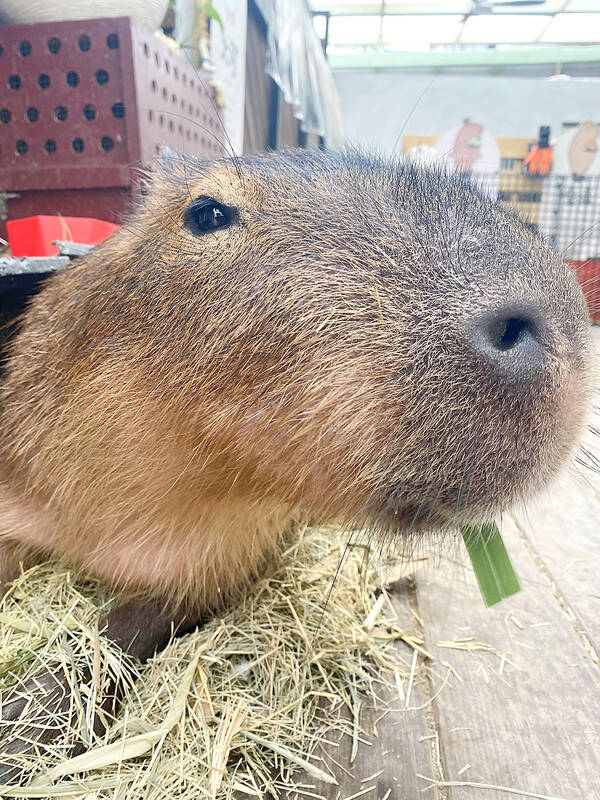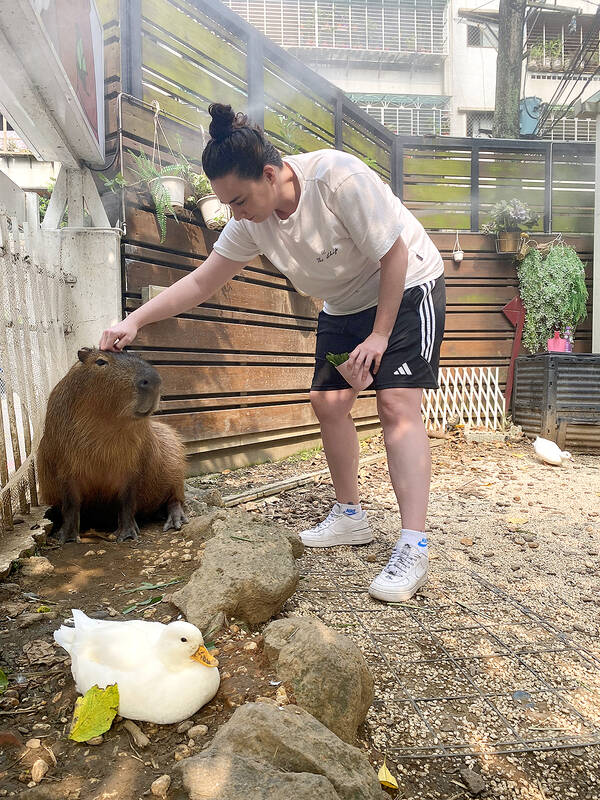If you haven’t heard, capybaras are having a bit of a moment. The hashtag #capybara has over 10 billion views on TikTok and counting. Viral videos circulate of these big fluffy rodents engaging in sometimes ridiculous, sometimes hilarious behavior — surfing down the river on a crocodiles’ back or balancing tangerines on their head. They even have a catchy Russian-language theme song that goes something like, “Capybara capybara ca-py-ba-rahhhh!”
Taiwan was the genesis of the cat cafe phenomenon. It’s a place where meerkats and hogs can be considered household pets, so obviously any notions of animal ethics were not going to suppress a pervasive love of all things cute, especially in this image-driven age of social media.
Capybara Knight (水豚騎士) in New Taipei City’s Tucheng District (土城) offers visitors a chance to get up close and personal with these strangely adorable internet sensations.

Photo courtesy of Hollie Younger
‘LIVING CHAIRS’
Capybaras are the world’s largest rodents, weighing up to 79kg and are native to South America. Herbivores and highly social creatures, they live in wild marshes in groups of between 10 and 20 individuals. They have webbed feet and are adapt swimmers, although they tend to hop when on land. The “living chairs” and “nature’s ottoman” nicknames were earned as other animals, including birds and even monkeys, like to sit on them.
They might look a bit like oversized, semi-aquatic guinea pigs but their friendliness and all-round cuteness has made them international internet celebrities, for good or ill.

Photo courtesy of Hollie Younger
At Capybara Knight, you can experience capybaras firsthand as they lounge in the shade with their duck friends, welcoming you to give them belly rubs, head scratches and, of course, food.
The cafe offers 90-minute sittings during which there are capybara-themed drinks, snacks and desserts to help you hit the minimum spend of NT$100/person. An additional NT$150 (NT$200 on weekends and holidays) gets you a 20-minute slot in the capybara enclosure. The fee includes a capybara-shaped egg cake for you and a cup of hay for them. Groups are kept small, and a keeper is on hand to help answer any questions.
Capybara Knight is home to two capybaras, one female named Ba La (拔辣) and her male companion Ga Bi (嘎逼), each two years old and surprisingly friendly, apparently, unbothered by all the attention. The cafe also houses two ducks, two rabbits, a dog and a cat.

Photo courtesy of Hollie Younger
The capybaras are well taken care of by passionate keepers, we are told. Their outdoor enclosure is large with hay for them to lie down in, grass for them to eat and even a pool for them to swim in. There are also steam vents keeping their pen as humid as a South American swamp.
Online reservations are recommended well in advance, especially on weekends and holidays — the capybaras are pretty popular at the moment.

Photo courtesy of Hollie Younger